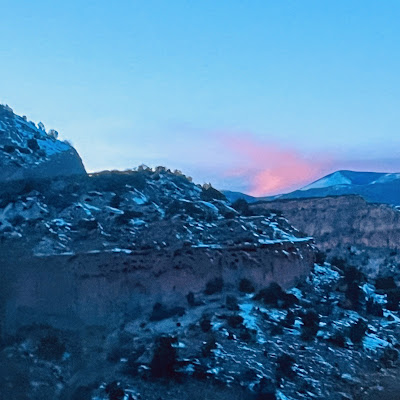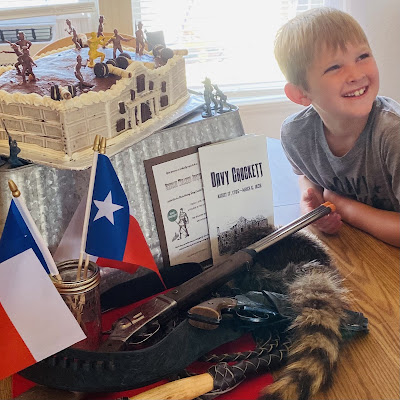Planning and Documenting Home School: My Method
Home School Corner
There are as many ways to organize your home school as there are home schools! But I'm going to share with you the way I do it...because it works for me. I'm going to break it into multi-parts but we'll start with a disclaimer.
DISCLAIMER: I am an obsessive-compulsive organizer, designer, and planner; I get kicks out of the paperwork side of homeschooling and I love handwritten notes. Not to mention, our structured schooling can be a little more relaxed at this point because we're still very much in the little years! Before you read on, repeat after me:
"I don't have to be a ridiculous overachiever to successfully educate my children and raise them in the fear and admonition of the Lord."
Did you say it? Good. Let's get on with the nitty gritty of plans and records!
For Me, Good Records Begin with Plans.
I start out planning with keeping records in mind. But since home school ends up being so much more than just academics--and you don't really get a separate "keeping house" or "catching up on life" time--because your kids are THERE--it takes some thought to maintain sanity and organize. Or at least, in the season our family is in, it does!
I always start out my yearly planning with a huge scribble down of everything we are working on as a family in every area I can think of: developing good habits, spiritual/emotional/personal growth, self-discipline, goals for everybody, ways to create healthy boundaries and bring in more joy, and of course, a huge master list of expectations for what they should learn in that school year as far as academic requirements!
This brainstorming session usually includes a lot of bunny trails revisiting Bible study, doodling, and prayer! All of these thoughts culminate into monthly "themes" around which I vaguely plan our various academic goals for each month--anywhere I have flexibility to customize to the theme, I do. This helps me corral like ideas and explore a little more depth in a given subject. The theme generally centers around science or social studies (history), but we've done language arts themes and math, at times.
Next, I look at my calendar and washi-tape out blocks of time to ensure margin, commitments, and deadlines are all respected. Once this massive brainstorming comes to an end, I'm ready to get started on ACTUAL CURRICULUM. This is generally just getting a feel for timing and how we can sustain what I hope to complete in any given season/semester/year/grade. Burnout is a real thing, ya'll.
So What Do the Records Look Like?
The Habit Tracker (see photo above) is probably my single most helpful tool in visual documentation of our homeschool, especially just in mindfulness and managing our time; but it is really more for MY visual understanding of how we spend our time. The more official “Records Sheet,” (see photo below) is basically a simple list of what we did every day with more/different details than the habit tracker. (I ought to convert this to typed files; but for now I just have them scanned in on Evernote--a note-taking app--so that I have a hard and soft copy backed up.)
So, for example, my tracker will be marked with all the broad subjects/skills we applied (e.g. “social studies-field trip-outside time-history/culture, science”) the list says what we did to practice it (e.g. “SS - Country Boy Mine tour”).

The state of New Mexico does not currently require set time allotment to given subjects, so I don’t have to document exact times for each item—thank goodness! (I think requiring a certain amount of time is silly, because that’s not how learning works. Factories producing a product; yes. Children understanding concepts; no. But I digress.)
Finally, since I now have a broad plan for the year or semester, I take a week at a time--or two weeks, to start out the year, and I translate all the brainstorming and lesson plans onto bite-sized, manageable tasks for each day on stickies, which go in my school binder on the checklist documenting page.I revisit this every week, usually on Sunday afternoons, to plan the next week. I write in pencil for easy alterations/shuffling around, and when we finish something, I document it in my records. At the end of each day I fill in the habit tracker and can easily see if we're sliding into unhealthy trends of ignoring one subject or discipline too much or excessively depending on another (though with unity studies, sometimes you have a specific emphasis for a given time; which is perfectly fine!)
The weekly planning part is a lot of brainstorming and cross-applications, which is why I condense and simplify it by doing the sticky note method. The magic/work happens in the planner, but I disseminate the info to my school binder, menu, garden planner etc. so I end up with various checklists so I’m not overwhelmed with other things while actually teaching or doing the job at hand. The key for me to surviving all this is to keep enough time with things to teach as you go; because real life is full of learning if you just look for it and make time for kids to be a part of what you’re doing.
So that's how I plan and keep records! I'd love to hear/see how you guys do it--I'm always looking to improve my system; though I do find my lists and charts somewhat therapeutic!
No matter what this chaotic season looks like; you do what the Lord calls YOU to do! Hopefully this just gave you some ideas or encouragement for how you can live a real, messy, busy life...and also curate the education of your kids!
Remember, the definition for success in home school is the same as the definition of success in anything else: do your best in the power of the Holy Spirit, and leave the results to God.
You might want to say that one together with me too! Ready?






Comments
Post a Comment